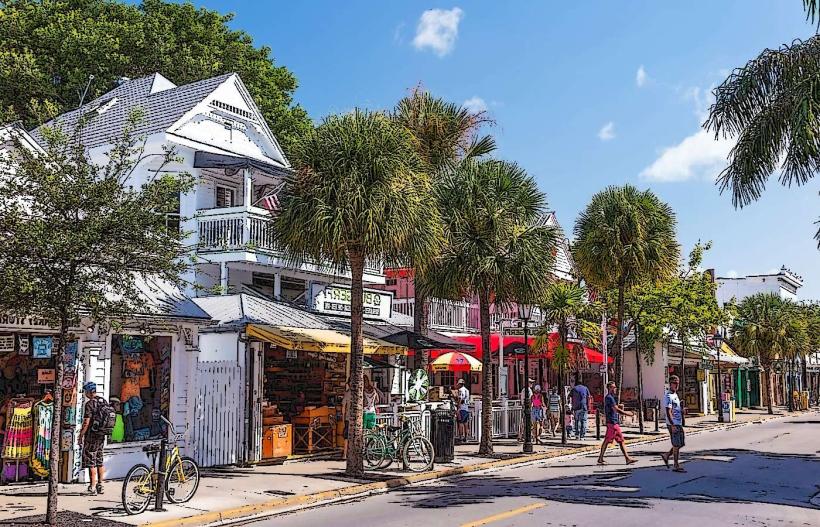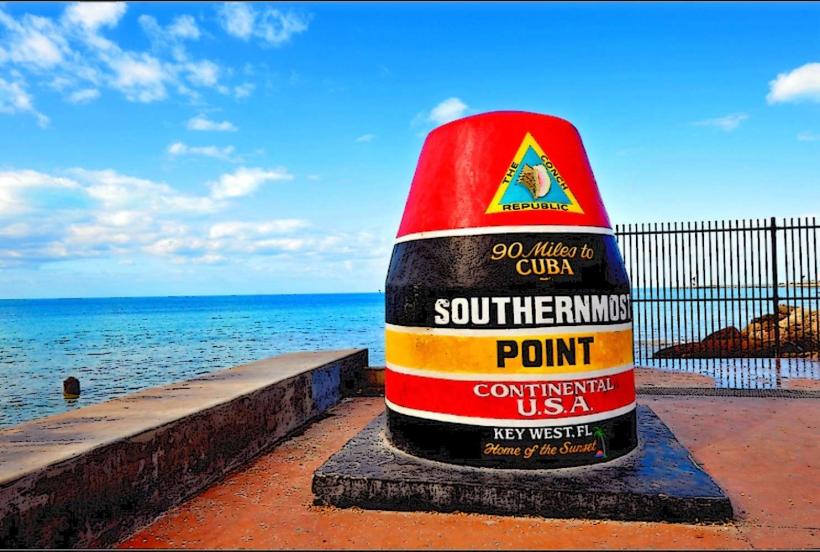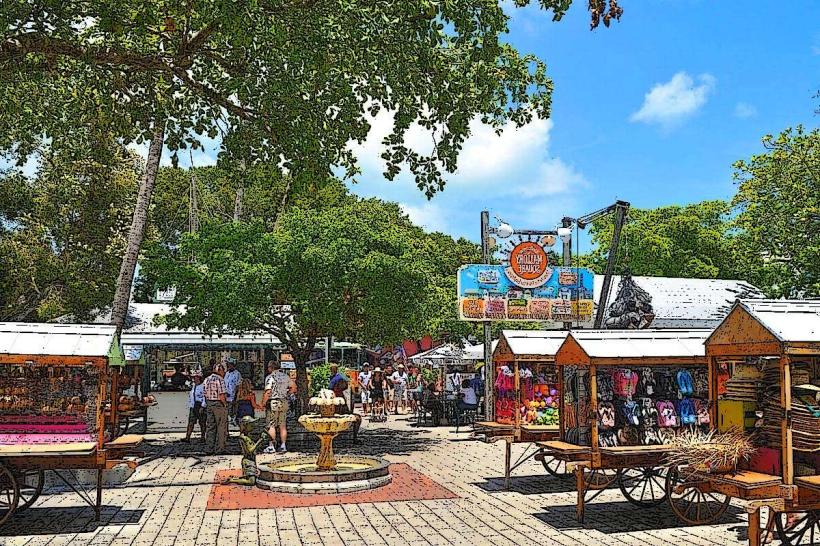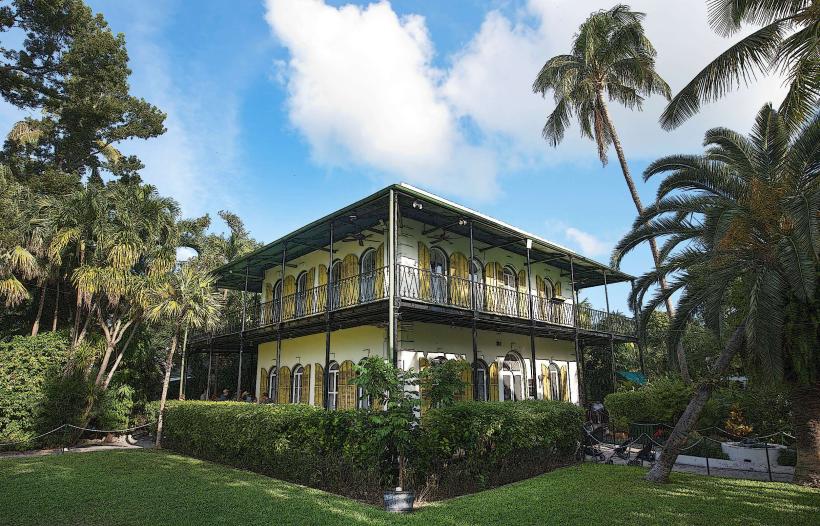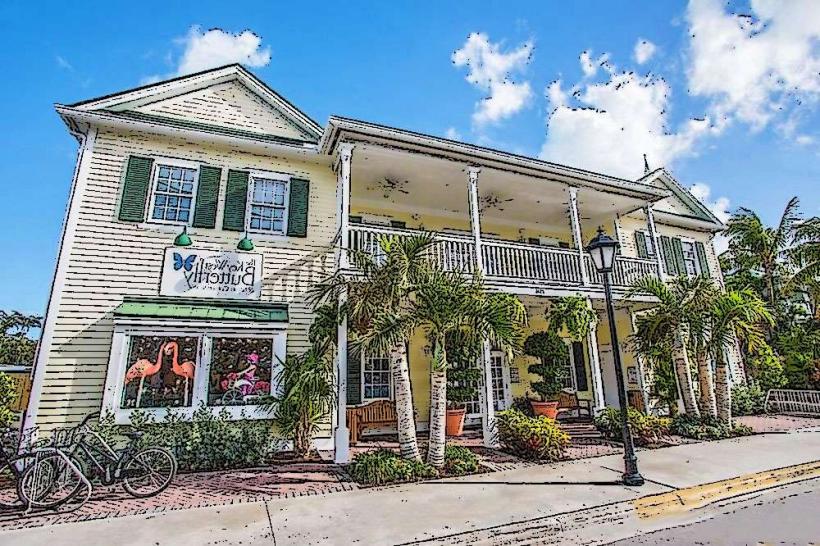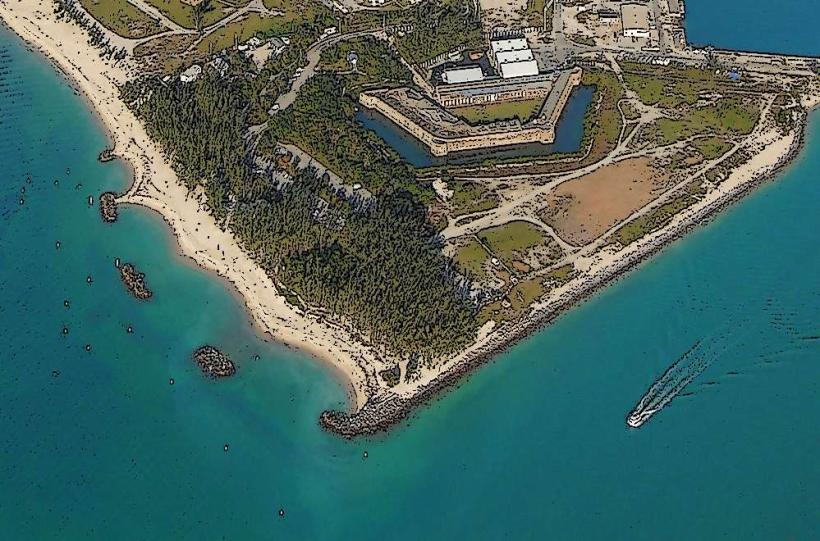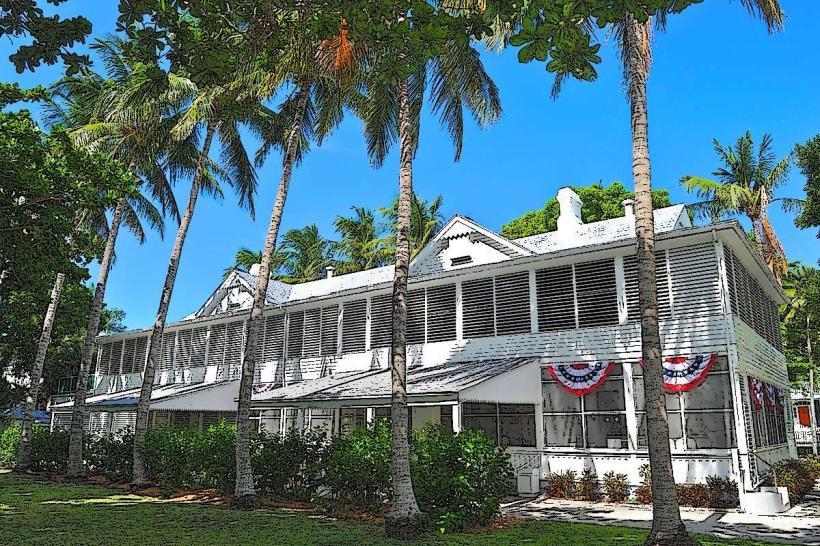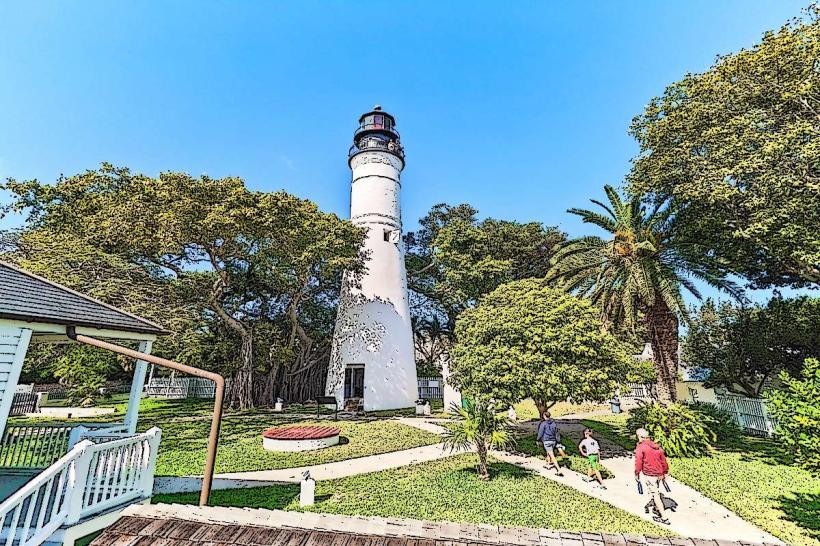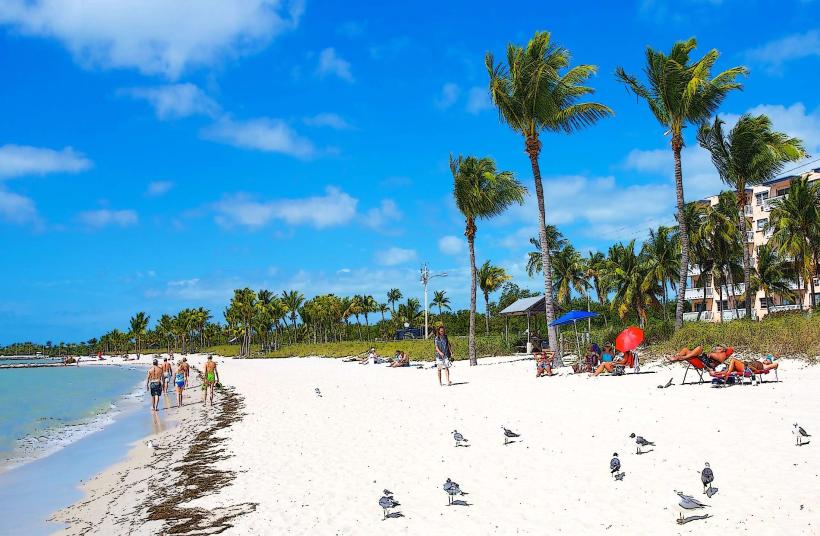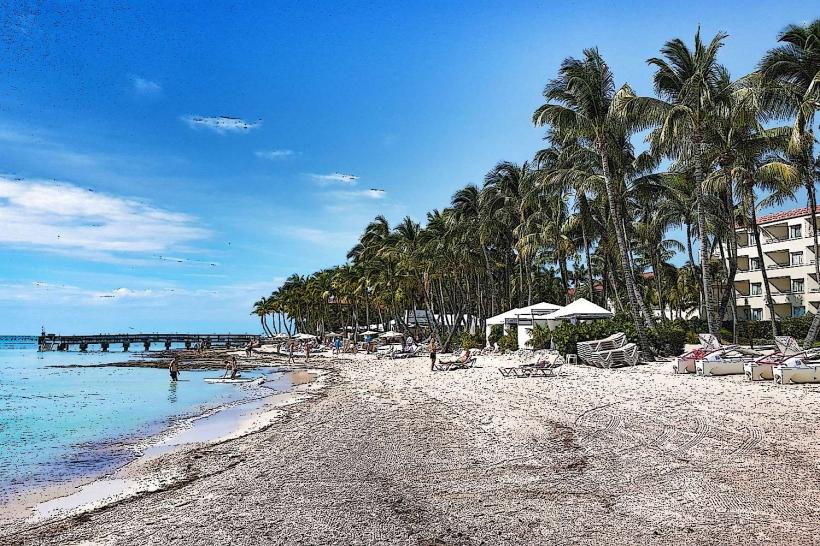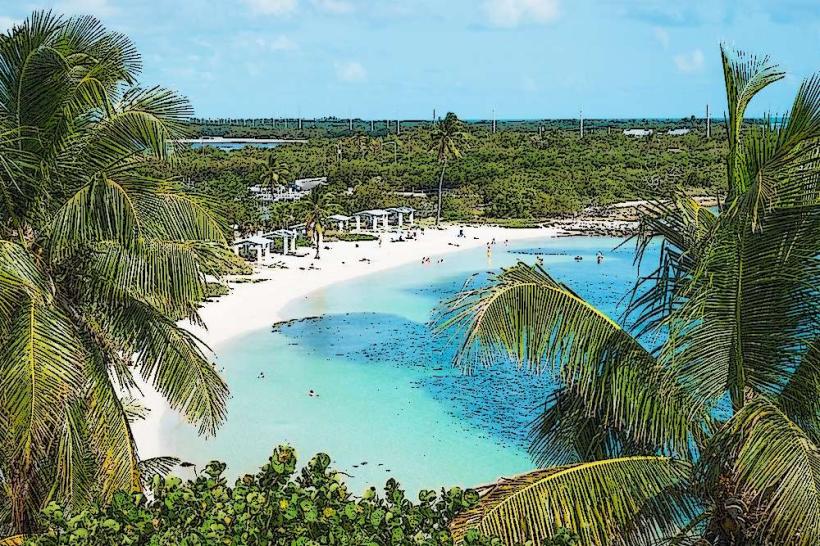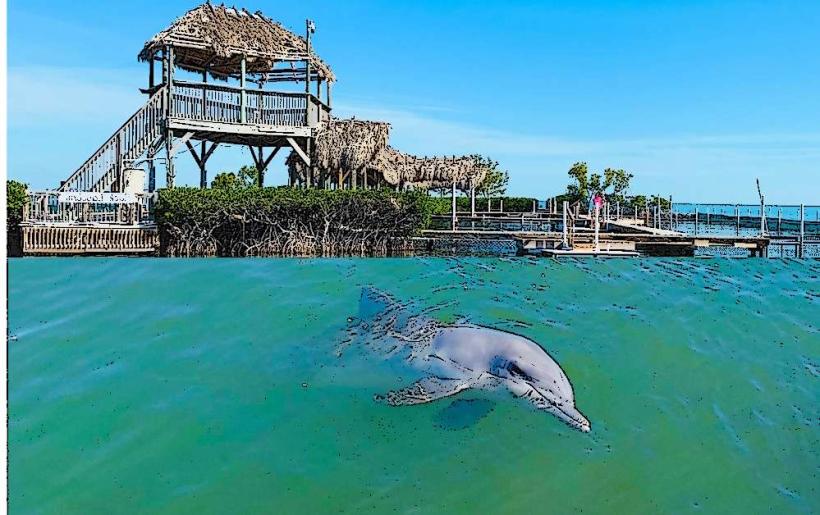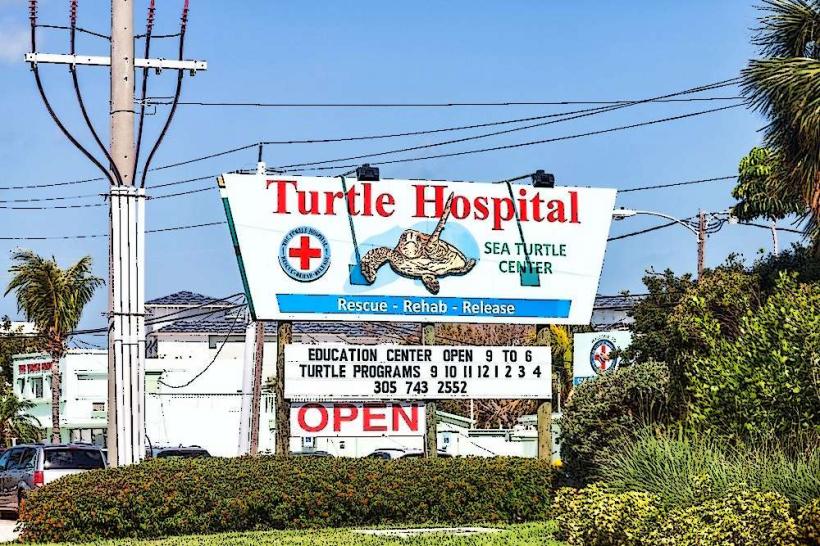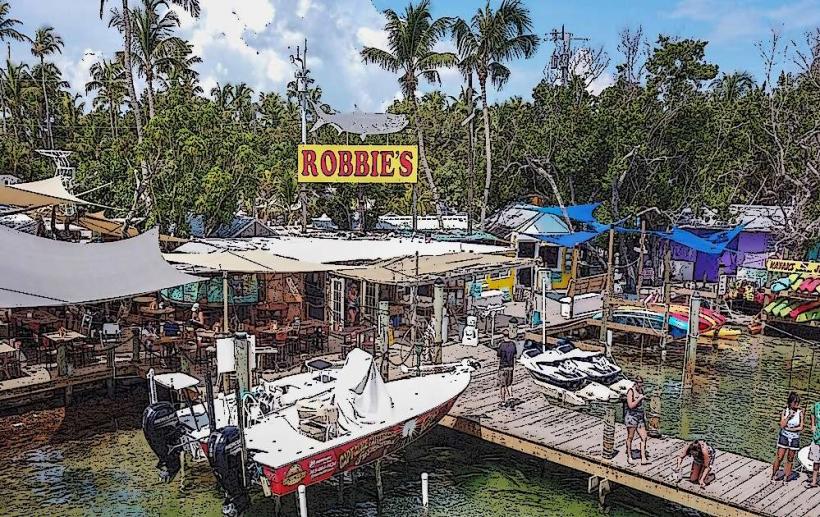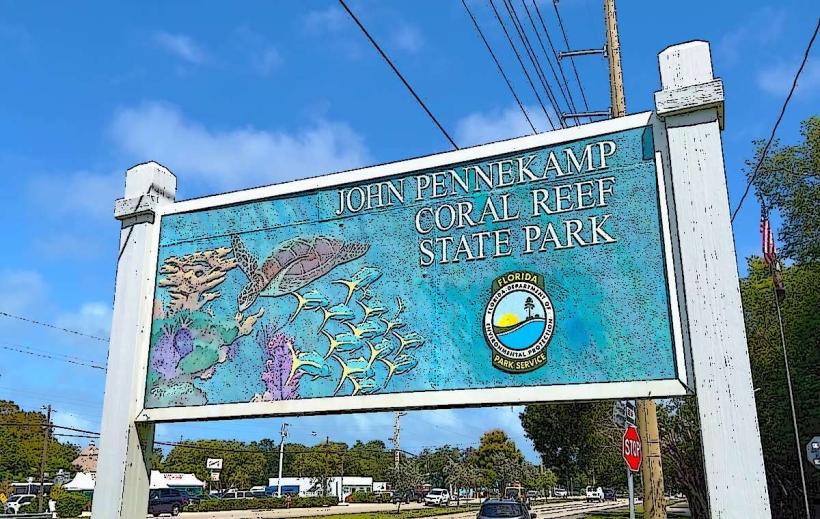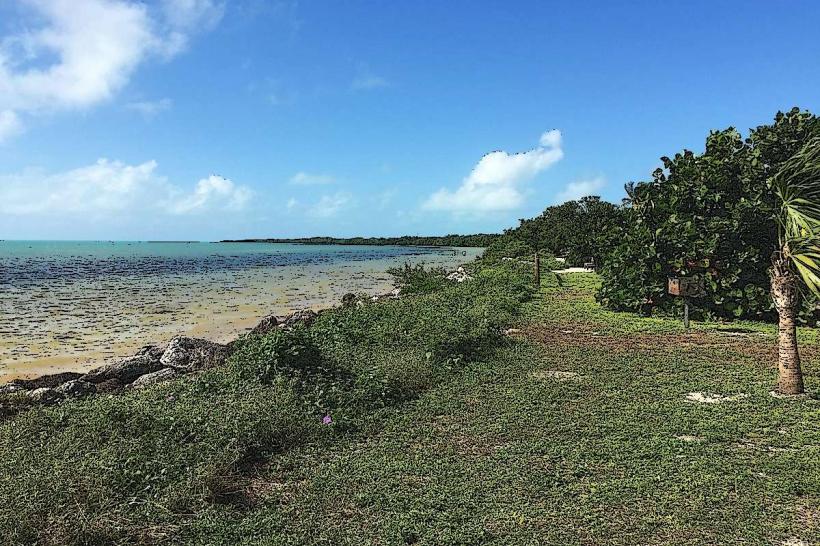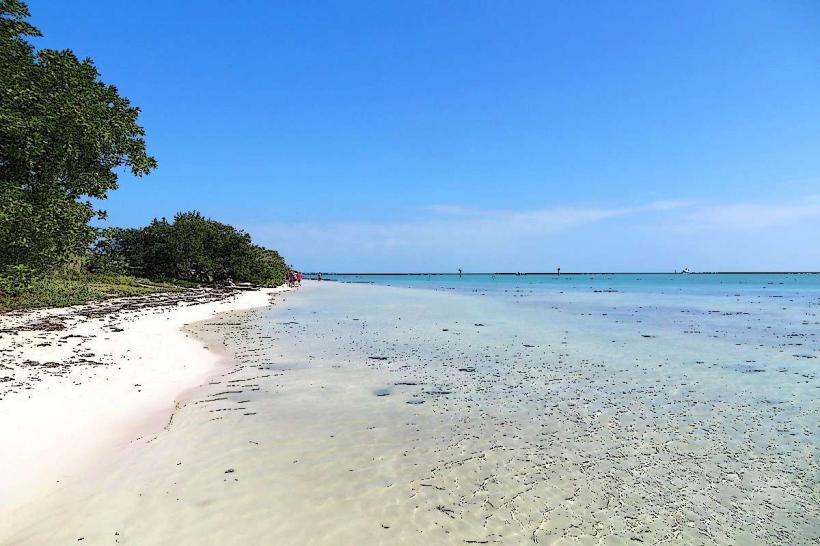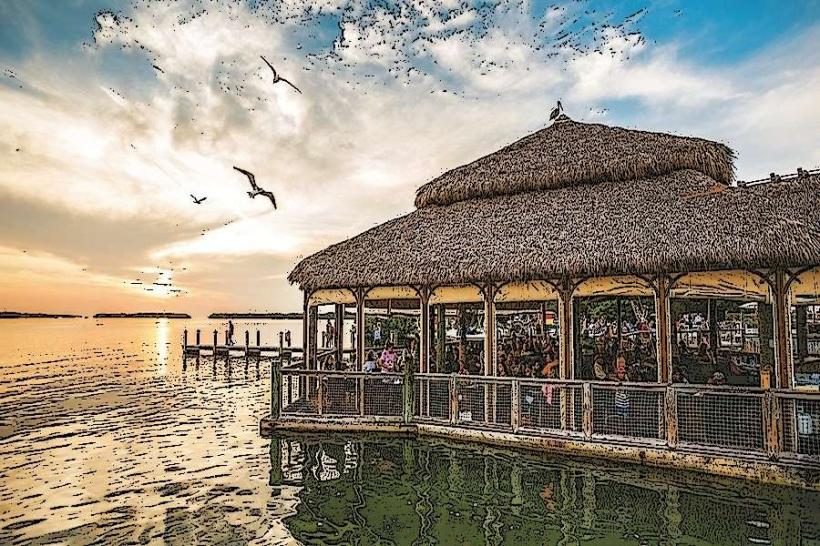Information
Landmark: Seven Mile BridgeCity: Florida Keys
Country: USA Florida
Continent: North America
Seven Mile Bridge, Florida Keys, USA Florida, North America
The Seven Mile Bridge is one of the most iconic and scenic bridges in the world, located in the Florida Keys. Spanning between Marathon in the Middle Keys and Little Duck Key in the Lower Keys, the bridge is a vital link on U.S. Route 1, part of the Overseas Highway. The Seven Mile Bridge is known for its stunning views, historical significance, and role in the development of transportation infrastructure in Florida.
Historical Background
Original Seven Mile Bridge (1912): The first Seven Mile Bridge was constructed in 1912 as part of Henry Flagler's Florida East Coast Railway's Key West Extension. This ambitious project aimed to connect the Florida Keys to the mainland via a railway system, allowing for more efficient transport of goods and people. At the time, it was a marvel of engineering.
Labor Day Hurricane of 1935: The bridge and the railway system suffered extensive damage during the devastating Labor Day Hurricane in 1935. After the hurricane destroyed the rail line, the bridge was repurposed for automobile traffic. The U.S. government decided to use the bridge for road traffic as part of the construction of U.S. Route 1.
New Seven Mile Bridge (1982): In 1982, a new bridge was constructed alongside the original to accommodate modern vehicular traffic. This new bridge was designed to withstand modern traffic loads and to provide a safe, high-clearance route for boats to pass beneath. The original bridge, though no longer used for cars, was preserved in part for public use and as a historic landmark.
Restoration of the Old Bridge: In January 2022, after a $77 million restoration, the 2.2-mile portion of the original Seven Mile Bridge was reopened to pedestrians and cyclists. This section connects Marathon to Pigeon Key, a small island historically used as a work camp for the railway workers.
Engineering and Design
New Seven Mile Bridge: The modern Seven Mile Bridge is a box-girder structure, built with precast concrete sections. It is 6.79 miles (10.93 kilometers) long and includes 440 spans. It was designed with a 65-foot-high clearance in the middle to allow boats to pass beneath, accommodating the boats traveling between the Gulf of Mexico and the Atlantic Ocean. This new bridge is an essential route for both locals and tourists, linking the Florida Keys and supporting traffic in the region.
Old Seven Mile Bridge: The original bridge, built with steel and concrete, had a swing span over Moser Channel to facilitate marine traffic. While the swing span has been removed, much of the structure has been preserved and converted into a pedestrian and cycling bridge. The remaining portion of the old bridge offers visitors a chance to experience this piece of history while taking in the beautiful surroundings.
Visitor Experience
Old Seven Mile Bridge (Restored): A popular spot for walking, cycling, and fishing, the restored 2.2-mile section of the original Seven Mile Bridge offers incredible views of the surrounding waters. The bridge also provides access to Pigeon Key, a small island that was once home to a work camp for the railroad workers. The key is now a historical site with exhibits about the bridge's construction and the history of the railroad. The restoration project has made this historic site accessible to the public, offering a unique opportunity to explore an iconic piece of Florida's past.
Seven Mile Bridge Run: Every year in April, the Seven Mile Bridge Run is held, a popular footrace that takes participants across the bridge. This event commemorates the completion of the new Seven Mile Bridge and draws thousands of runners from around the world. It offers a rare chance for people to experience the bridge in a way that few others can, and it has become a highly anticipated event in the Florida Keys.
Cultural Significance
Hollywood Appearances: The Seven Mile Bridge has also made appearances in several major films and television series. It has been featured in movies like True Lies (1994), License to Kill (1989), 2 Fast 2 Furious (2003), and the television series Burn Notice. The bridge’s dramatic, sweeping views and unique design have made it an ideal backdrop for high-speed chases and scenic shots, further cementing its place in popular culture.
Things to Do and See
Scenic Views: One of the major draws of the Seven Mile Bridge is its unparalleled views. From the bridge, visitors can see the blue waters of the Gulf of Mexico and the Atlantic Ocean, making it a photographer’s paradise. The bridge itself has become a symbol of the Florida Keys and is one of the most photographed landmarks in the region.
Walking and Cycling: The restored section of the Old Seven Mile Bridge is an excellent spot for walking, jogging, and cycling. The pedestrian path runs along the bridge’s length, providing incredible views of the water, and offers a peaceful escape from the typical tourist crowds.
Fishing: The old bridge is also a favorite spot for fishing, with multiple points along the bridge where visitors can cast their lines. Anglers often try to catch species like snapper, grouper, and barracuda in the waters below.
Pigeon Key: At the end of the restored bridge is Pigeon Key, a small island that was once home to workers who constructed the original railway bridge. Today, the island is a historical site with exhibits about the railroad's construction and its impact on the region. The island also offers guided tours, snorkeling opportunities, and a chance to relax in a quieter, more secluded part of the Florida Keys.
Visiting Tips
Best Time to Visit: The Seven Mile Bridge is accessible year-round, but the best time to visit is during the cooler months (from November to April), as the Florida Keys can be quite hot and humid in the summer.
Parking: There are several parking areas available on both ends of the Seven Mile Bridge, particularly near the pedestrian entrances to the old bridge and Pigeon Key.
Safety Considerations: While walking or cycling on the bridge is allowed, it’s important to stay aware of traffic on the modern bridge. The old bridge can be windy and exposed to the sun, so it’s wise to bring water, sunscreen, and hats for protection.
Nearby Attractions
Marathon: Marathon, located near the Seven Mile Bridge, is known for its excellent beaches, parks, and watersports activities. It’s also home to the Florida Keys Aquarium Encounters, where visitors can interact with marine life like stingrays and sea turtles.
The Florida Keys Overseas Heritage Trail: This 106-mile long trail runs through the Florida Keys, connecting the different islands and offering scenic paths for cycling and walking. It follows parts of the old railway route, including sections of the Seven Mile Bridge.
Key West: Located at the southernmost point of the Florida Keys, Key West is known for its vibrant nightlife, historical landmarks, and charming streets lined with colorful homes. It's a must-see destination for visitors to the area.
Conclusion
The Seven Mile Bridge is not just a remarkable engineering feat, but also a historical and cultural landmark. Whether you're a history enthusiast, a nature lover, or simply someone who enjoys a good view, the Seven Mile Bridge offers a variety of experiences. From walking along the restored bridge and visiting Pigeon Key to participating in the Seven Mile Bridge Run, there are many ways to enjoy this iconic bridge and the stunning landscape surrounding it.

